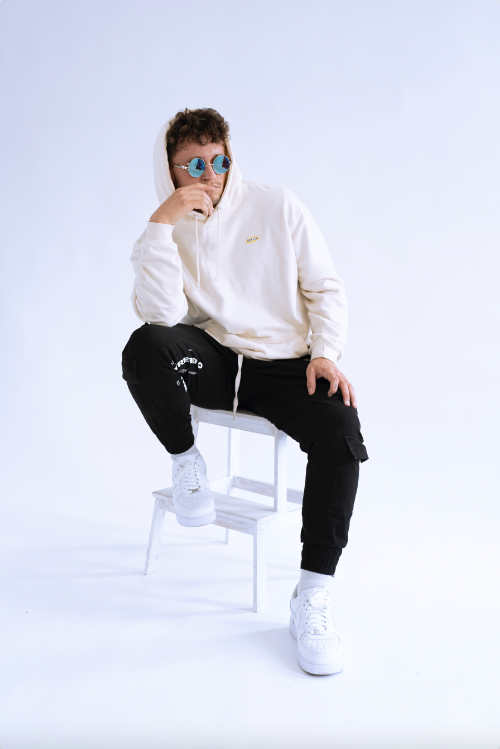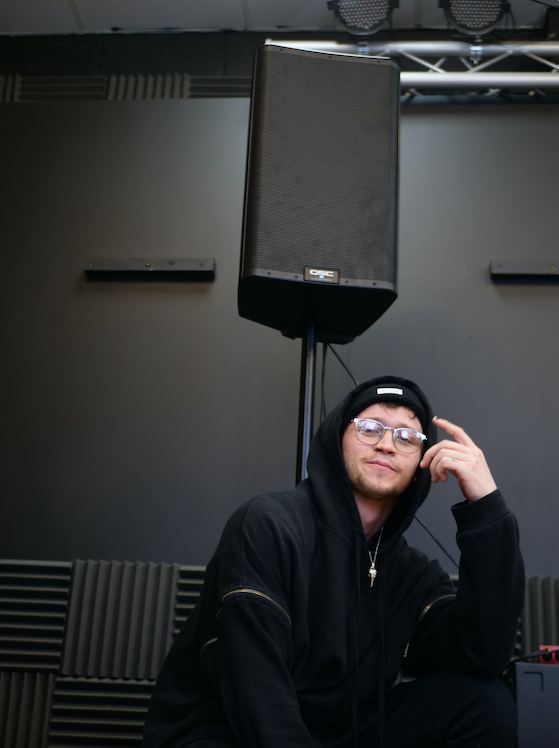“It was an absolute mess!” London-based independent artist Harrison Walker says of the lockdown period, which saw him quit his part time job to take on an internship, only for it to immediately get shelved due to the pandemic. “I was in this kind of limbo where I wasn't on furlough from my old job because I literally just left, and then I didn't have a new job. So to be honest with you I was just sat at home, doing nothing.”
Well not nothing – Walker admits he watched “everything” (including Peaky Blinders possibly for the fourth time) and a lot of Marvel films. “I'm a massive nerd. So all the superhero stuff is right up my street!”
Like many singer-songwriters during the pandemic, Walker took a job to see himself through, developing a new hobby in the process – and not one you’d necessarily naturally pair with the hoodie-wearing trap artist:
“I got a construction job as a landscaper and that really got me into gardening,” he grins. “We've got a little veg patch now; we're growing peppers, lettuce, basil, mint – we've got it all!”
Inspired by the likes of Post Malone and The Weeknd, Walker describes his style as ‘melodic trap’, although some of his biggest influences are actually metal bands.
“Yeah, it’s a bit strange, because the music I make is very R&B and pop, but the music I listen to is very different. One of my favourite artists of all time is this the singer from the band Letlive, Jason Aalon Butler. I've got their vinyl framed on my wall, so a lot of my inspiration actually comes from the metal scene.
"Don't get me wrong, I do listen to loads of R&B and pop as well. I prefer to get inspiration from the underground artists that people don't know so well.”
Walker has been releasing singles since 2019, and has been dropping a steady stream of tracks on Spotify as part of a wider plan. He’s since honed and matured his songwriting skills considerably with a mixture of catchy and confessional lyrics, and has been producing himself for the last few years (self taught), using Logic – although he says he can “potter around” in Ableton when he needs to.
“When I started producing, that's what started changing my music. It was really acoustic and I was just getting bored of it. I first started producing the drums by getting Splice samples and cutting them up, and this changed everything.
"I also love doing vocal production – it’s my favourite part of the whole track. I'll do all the main vocals and the harmonies, but then I'll take them, cut them up and I'll glitch them using loads of effects and then there will be little melismas of them in the song. They're not overused, but if you listen to my songs, you'll hear tiny vocal samples, but they're not – they're my vocals, but I've just messed around with them."




